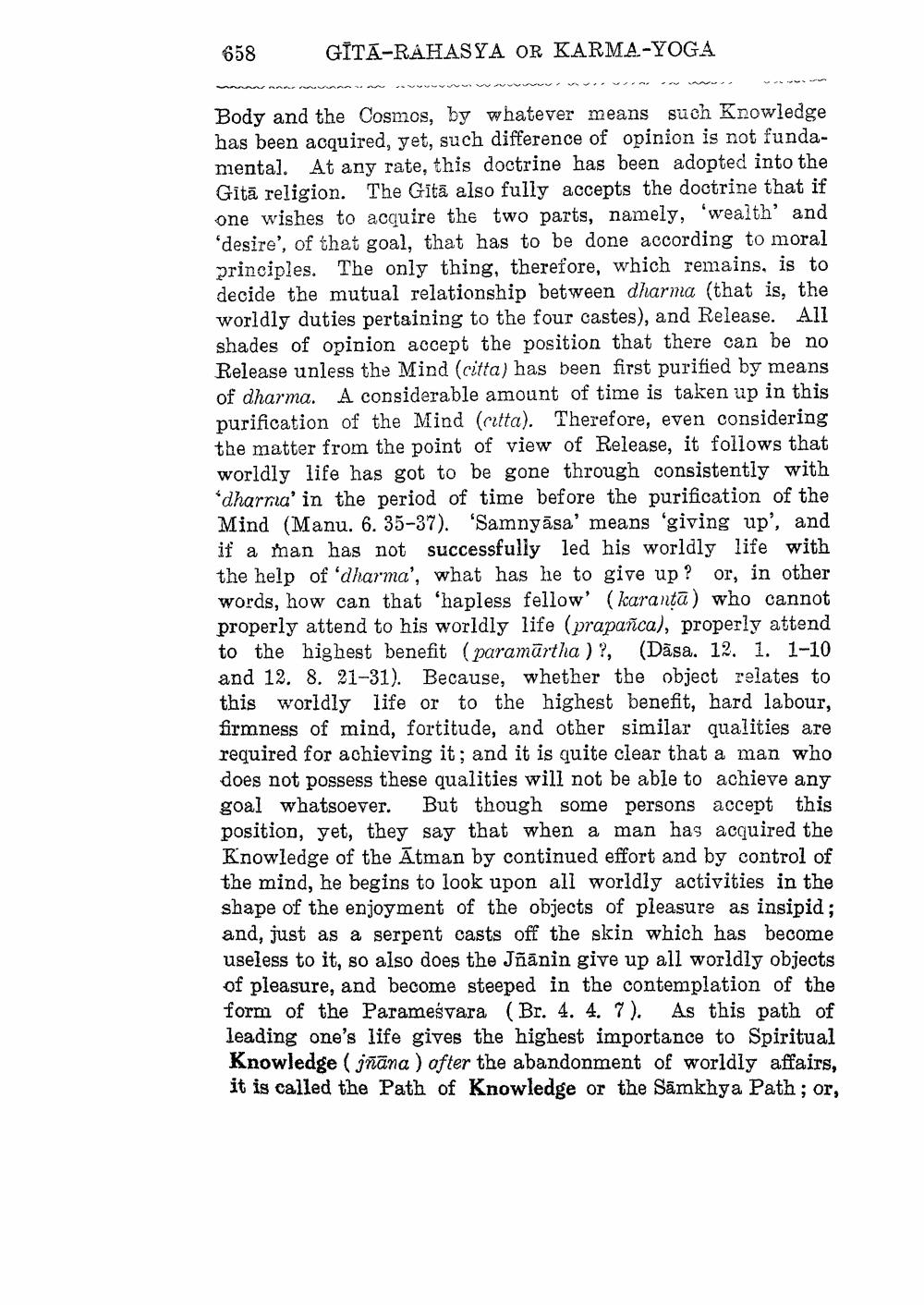________________
658
GITA-RAHASYA OR KARMA-YOGA
wwwww announ
W
Body and the Cosmos, by whatever means such Knowledge has been acquired, yet, such difference of opinion is not fundamental. At any rate, this doctrine has been adopted into the Gita religion. The Gita also fully accepts the doctrine that if one wishes to acquire the two parts, namely, 'wealth' and 'desire', of that goal, that has to be done according to moral principles. The only thing, therefore, which remains. is to decide the mutual relationship between dharma (that is, the worldly duties pertaining to the four castes), and Release. All shades of opinion accept the position that there can be no Release unless the Mind (citta) has been first purified by means of dharma. A considerable amount of time is taken up in this purification of the Mind (ratta). Therefore, even considering the matter from the point of view of Release, it follows that worldly life has got to be gone through consistently with 'dharma' in the period of time before the purification of the Mind (Manu. 6. 35-37). 'Samnyasa' means 'giving up', and if a man has not successfully led his worldly life with the help of 'dharma', what has he to give up? or, in other words, how can that 'hapless fellow' (karanta) who cannot properly attend to his worldly life (prapanca), properly attend to the highest benefit (paramurtha)?, (Dāsa. 12. 1. 1-10 and 12. 8. 21-31). Because, whether the object relates to this worldly life or to the highest benefit, hard labour, firmness of mind, fortitude, and other similar qualities are required for achieving it; and it is quite clear that a man who does not possess these qualities will not be able to achieve any goal whatsoever. But though some persons accept this position, yet, they say that when a man has acquired the Knowledge of the Atman by continued effort and by control of the mind, he begins to look upon all worldly activities in the shape of the enjoyment of the objects of pleasure as insipid; and, just as a serpent casts off the skin which has become useless to it, so also does the Jñanin give up all worldly objects of pleasure, and become steeped in the contemplation of the form of the Paramesvara (Br. 4. 4. 7). As this path of leading one's life gives the highest importance to Spiritual Knowledge (jana) after the abandonment of worldly affairs, it is called the Path of Knowledge or the Samkhya Path; or,




